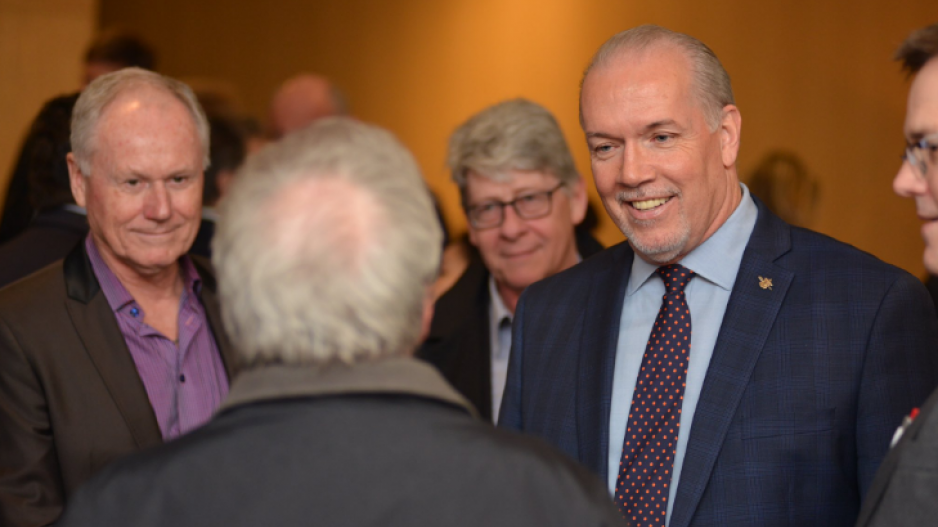B.C. Premier Christy Clark should have been more active urging a resolution of the Canada- U.S. softwood lumber agreement, according to NDP leader John Horgan, who addressed the Greater Vancouver Board of Trade February 10.
“We had a year and a half to get on this and we dropped the ball – the province dropped the ball,” Horgan said after his speech to a media scrum.
He also questioned Clark’s wisdom in suggesting earlier this week in a Facebook live interview that she planned to send an envoy to Washington to lobby for a resolution to the softwood lumber dispute.
“I don’t know where a representative from B.C. is going to fit into the executive order processes that Mr. Trump is operating under,” he said.
Canada’s 2006 softwood lumber deal with the U.S. expired in October 2015 and both countries were restricted from slapping on tariffs for at least one year following that expiry.
The Canadian government is the lead negotiator on the file and cooperation between governments has been going on for years, with representatives from the B.C. government and the Council of Forest Industries working closely with Ottawa.
Prime Minister Justin Trudeau shuffled his cabinet in January to appoint Chrystia Freeland as Minister of Foreign Affairs and the cabinet member in charge of all dealings with the U.S.
In Horgan’s speech, he said one solution to improving the health of the province’s forestry sector was to limit the export of raw logs.
“Instead of shipping jobs offshore in the form of raw logs, I would like to see a government that is focusing on assisting the forest industry to innovate, to add value and create opportunities for our wood products,” he said.
The B.C. government has already adopted a strategy to increase access for value-added wood products in the U.S. and in Asia.
That strategy includes seeking exemptions from trade quotas for specialty lumber and wood products in any future softwood lumber agreement with the U.S.
One part of the forestry sector that is involved in creating value-added products is the pulp and paper industry, which turns wood chips into paper products.
Horgan did not address a proposal from pulp and paper executives to remove the PST on electricity used in manufacturing.
Business in Vancouver reported on that request earlier this week.




